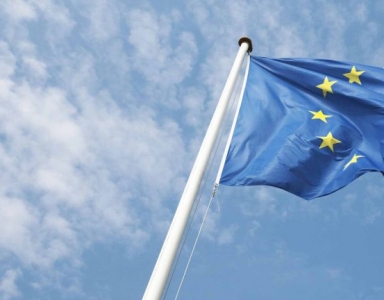Inclusion of non-EU partners in Horizon 2020 consortium
Horizon 2020, the largest funding program for research and innovation in the European Union (EU), claims to be “Open to the World” and allows the cooperation between EU-researchers[1] and their counterparts around the world in Horizon 2020 projects on any topic. What does this openness mean? Which are associate countries in this context? May participants from these countries receive funding? Is it an advantage to include third and associate countries?
In this article we summarize the answers to these frequently asked questions about cooperation with non-EU partners and discuss how this will affect your applications.
What does “open to the world” mean?
Participants from all over the world, regardless of their country of establishment or residence, may participate in most Horizon 2020 calls. This is what the EU considers “open to the world”. Horizon 2020 offers such opportunities for both collaborative projects and individual research grants.
- Consortia for collaborative Research & Innovation Actions within Horizon 2020 may include any legal entity from anywhere in the world, as long as it includes at least three participants from three different EU Member States or Associated Countries.
- European Research Council and the Marie Skłodowska-Curie actions grant schemes are open to individual researchers from anywhere in the world, provided that the research they undertake will be carried out in an EU Member State or Associated Country.
Which countries are Associated and what does this status entail?
Associated Countries have made Association Agreements and can therefore participate in Horizon 2020 under the same conditions as EU Member States. As of November 7th 2016, there are sixteen countries associated to Horizon 2020. These are: Albania, Armenia, Bosnia and Herzegovina, Faroe Islands, Georgia, Iceland, Israel, the former Yugoslav Republic of Macedonia, Moldova, Montenegro, Norway, Serbia, Switzerland, Tunisia, Turkey, and Ukraine[2]. Unlike in FP7, Liechtenstein does not intend to associate to Horizon 2020.
What about the United Kingdom (UK)?
Because of BREXIT, many hesitate to include partners from the UK in their consortium. The consequences of BREXIT on UK participation in Horizon 2020 and the next framework programme are unclear. Theresa May has stated the intention for the UK to remain committed partner and ally to friends across the continent and that leaving the European Union, does not mean leaving Europe. Nevertheless, the UK will either be completely relegated to third country or will join the EU research system as an ‘Associated Country’. The eventual status will critically depend on the UK offering free movement of people, as was the critical issue to accept the Swiss. A final option would be by way of “Partial Association” a status Switzerland had for two years before becoming fully associated.
Who is eligible for funding?
Although researchers from all over the world may participate in Horizon 2020 projects, they are not always eligible for Horizon 2020 funding. The EU distinguishes between countries that are automatically eligible for funding and those that are not:
- Associated Countries are automatically eligible for funding, as they participate in Horizon 2020 under the same conditions as EU Member States.
- Research organisations in about 130 developing countries are eligible for funding (Annex A of the Horizon 2020 Work Programmes), except where this is explicitly excluded in the call text.
In contrast, Industrialised Countries and Emerging Economies are not eligible for funding, unless such funding is explicitly foreseen in the call. Participants from such countries are therefore only allowed to participate with a status of non-associated third country entities and have to acquire the resources for their part of the action through different means. Several countries guarantee to co-fund their participants in Horizon 2020 actions when selected for EU funding. Further details of available local support can be found online (EC, 2018). Participants in otherwise non-eligible countries may benefit from exceptional circumstances in which case they may receive EU funding:
- When funding is provided for under a bilateral scientific and technological agreement or any other arrangement between the EU and an international organisation or third country.
- When the European Commission deems the participation of the entity essential for carrying out the action.
Since 2017 the American government and the European Union are working on a bilateral agreement to facilitate cooperation between European and American researchers, allowing for EU funding of American participants within Horizon 2020. Inversely, European researchers and companies may receive funding from the National Institutes of Health regardless of whether they collaborate with American legal entities. In a previous article about American funding opportunities for Life Sciences researchers we have highlighted several US funding opportunities available for Life Sciences scientists based outside the US.
Is it an advantage to include third and associate countries?
Generally speaking, including partners from associated countries will not affect the rating of your proposal, neither positively nor negatively. On the other hand, including partners from non-associated third country entities is only recommended if the participation of the entity in question in the project is essential, and brings clear benefits to the consortium (i.e. access to unique know-how, data, research infrastructures, geographical environments; outstanding competence and expertise, involving key partners in emerging markets, etc.).
Last but not least, if cooperation with non-EU partners is particularly encouraged in the call text, we advise to do so, as this will be considered positive during the evaluation of proposals. Such calls are published in bi-annual “Work Programmes” and listed on the International cooperation topic page. Again, you have to justify this exceptionality in the proposal, prove decent contribution to the action of work, and make evident that there is a clear interest and benefit of this international cooperation both for the EU and the partner in question.
Hezelburcht | Expert in European grants
In conclusion, also parties from non-EU countries may participate in Horizon 2020 and even be eligible for funding. Involvement of third party countries may in some situations be beneficial for your proposal.
We can help you identify and apply for the most suitable funding instruments for your specialized research area. We have extensive experience in setting up, applying and coordinating large-scale European innovation tracks. Moreover, we are happy to advise also in special cases as there are always some exceptions[3] to the above listed situations. If you have questions about building a strong and balanced consortium or other questions related to writing a grant proposal, please do not hesitate to contact us for more information.



